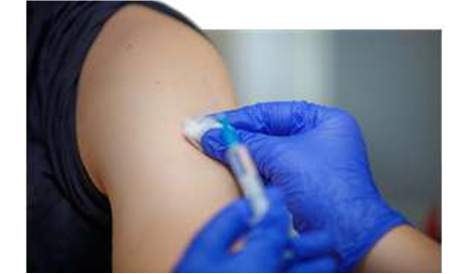A nurse is contributing to the plan of care for a newly-admitted client who has schizophrenia and a history of aggressive behavior.
Which of the following interventions should the nurse include in the initial plan?
Warn the client that the staff will use seclusion as a consequence if there are repeated reports of hallucination.
Keep the facility’s security personnel constantly visible to the client throughout treatment.
Collaborate with the client to develop a daily physical exercise routine.
Agree that the hallucinations are real if the client exhibits aggressive behavior toward other clients.
The Correct Answer is C
Collaborate with the client to develop a daily physical exercise routine. This intervention can help reduce aggression and impulsivity in schizophrenia by providing an outlet for frustration, enhancing self-esteem, and improving mood. Physical exercise can also improve physical health and reduce the risk of metabolic syndrome associated with antipsychotic medications.
Choice A is wrong because warning the client that the staff will use seclusion as a consequence if there are repeated reports of hallucination is punitive and threatening. This can increase the client’s anxiety, paranoia, and hostility, and may worsen the psychotic symptoms. Seclusion should only be used as a last resort when the client poses a serious danger to self or others, and not as a punishment or coercion.
Choice B is wrong because keeping the facility’s security personnel constantly visible to the client throughout treatment is intimidating and stigmatizing. This can also increase the client’s fear, distrust, and resentment, and may trigger aggressive behavior. Security personnel should only be involved when there is an imminent risk of violence, and not as a routine measure.
Choice D is wrong because agreeing that the hallucinations are real if the client exhibits aggressive behavior toward other clients is reinforcing the delusional belief and rewarding the aggression. This can also confuse the client and undermine the therapeutic relationship.
The nurse should acknowledge the client’s experience of hallucinations, but not endorse them as reality. The nurse should also set clear limits on aggressive behavior and use de-escalation techniques to calm the client.
Nursing Test Bank
Naxlex Comprehensive Predictor Exams
Related Questions
Correct Answer is C
Explanation

The correct answer is choice C. Allergy to gelatin is a contraindication for the inactivated influenza vaccine because gelatin is one of the ingredients in the vaccine. People with severe, life-threatening allergies to any ingredient in a flu vaccine (other than egg proteins) should not get that vaccine.
Choice A is wrong because pregnancy is not a contraindication for the inactivated influenza vaccine. In fact, pregnant people are recommended to get a flu shot because they are at higher risk of developing serious flu complications.
Choice B is wrong because immunosuppression is not a contraindication for the inactivated influenza vaccine. People with weakened immune systems can get a flu shot, but they should avoid the nasal spray flu vaccine which contains live viruses.
Choice D is wrong because moderate illness with fever is not a contraindication for the inactivated influenza vaccine. People who are moderately ill can still get a flu shot, but they should wait until they recover if they have a severe illness.
Correct Answer is B
Explanation
Justice is the ethical principle of treating the patient fairly and equally among staff when making assignments. The charge nurse is upholding this principle by ensuring that the workload is distributed evenly and that no staff member is overburdened or underutilized.
Choice A is wrong because Veracity is wrong because veracity is the ethical principle of telling the truth to the patient.
This principle is not relevant to the scenario of making assignments.
Choice C is wrong because Autonomy is wrong because autonomy is the ethical principle of respecting the patient’s right to make their own healthcare decisions.
This principle is not relevant to the scenario of making assignments.
Choice D is wrong because Fidelity is wrong because fidelity is the ethical principle of keeping promises to the patient.
This principle is not relevant to the scenario of making assignments.
Whether you are a student looking to ace your exams or a practicing nurse seeking to enhance your expertise , our nursing education contents will empower you with the confidence and competence to make a difference in the lives of patients and become a respected leader in the healthcare field.
Visit Naxlex, invest in your future and unlock endless possibilities with our unparalleled nursing education contents today
Report Wrong Answer on the Current Question
Do you disagree with the answer? If yes, what is your expected answer? Explain.
Kindly be descriptive with the issue you are facing.
